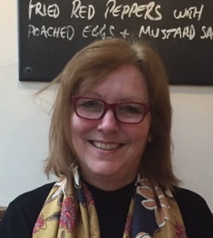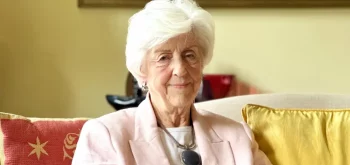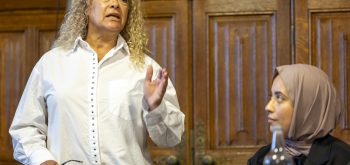This week we have been hit by something unexpected, but clearly of wider significance and something that could become an issue for other innocence projects.
 We have been working on one particular file for over two years, a murder case referred to us by a local solicitor.
We have been working on one particular file for over two years, a murder case referred to us by a local solicitor.
The client has always maintained innocence, and the day and time of death were key issues. One of our casework teams, led by our very talented student Samantha Day, discovered from the unused material that there were numerous witness sightings of the victim after the apparent date of death.
This could be a potentially persuasive factor supporting our client’s story. As a result, Samantha spent a considerable chunk of her summer compiling a comprehensive evidenced application to the CCRC, stretching to 60 powerful pages.
We recently sent this to our client and the referring solicitor for approval, fully expecting to be submitting this to the CCRC very soon.
We had a positive response from the solicitor acknowledging the huge amount of work, but curiously we heard nothing from our client. Having experienced past problems with prison correspondence, we contacted the client’s mother to check that he had received the draft application.
Her response was something we really had not anticipated. However, it is wholly understandable and illustrates a perceived or real impediment for people who allege they have been wrongly convicted.
In a nutshell, our client’s mother told us that her son is agonising over whether to submit the application to the CCRC.
There could be any number of reasons why someone changes their mind over making a submission to the CCRC. But our client says that he has spent ten years in prison, has got to a stage where he now has certain privileges and he is scared, very scared, that he will lose these, along with his chances of release close to tariff (in the next few years) if he is seen as ‘an appellant’.
Samantha spent many hundreds of hours on this case. How does she feel and what has she learned? She takes up the story in her own words:
‘Working with miscarriages of justice is never easy; being part of the Cardiff Law School Innocence Project has taught me this and more. Innocence Projects deal with some of the most difficult, and maybe ‘grey’ cases of recent years, and students are therefore warned from the very start of the insurmountable challenges that lie ahead.
As part of the innocence project for the last two years, I have consistently continued to pursue any available case work. I have read and reviewed file after file, and do not intend to stop any time soon.
The endpoint of all of this research, in most cases, is to then compile an application to the Criminal Cases Review Commission (CCRC), and this is something I did over the summer. The final draft of the application was completed in August, and was sent to the client for his views, and I suppose, ‘final word’.
With the main goal of most innocence projects being to submit (hopefully successful) applications to the CCRC, I was never prepared for, or even thought of, the possibility of the client turning down the application, for reasons that are not related to the quality or strength of the case we have made on his behalf.
Compiling a CCRC application is a huge and time-consuming challenge, and one does this inevitably believing that it will in fact be sent to the CCRC.
However, the client for whom I prepared the CCRC application throughout the summer does now not wish to submit the application. For me, this decision is agonising, but not for the reason that one may think.
Despite completing hundreds of hours of research on this case, the first thought that came in to my mind was not ‘after all the work I have done’, or ‘I cannot believe it’, but I did feel low. I was deflated. More precisely, I felt low and deflated for the client. This is somebody who has protested his innocence for over ten years, but yet cannot bring himself to submit an application to the CCRC.
After having chance to process the client’s decision, it became apparent to me that this is both a pervasive and real problem for victims of miscarriages of justice and innocence projects.
It may seem incomprehensible for someone who claims to have been wrongly convicted to turn down any opportunity which might potentially correct this. It is incomprehensible in that such persons are compelled to consider whether or not to fight to overturn their conviction, because of the possibly devastating implications it may have upon them whilst in prison.
This is not right. And of course, in an ideal and fair world, prisons would not treat ‘appellants’ or those who protest their innocence any differently from those who fully admit their crimes. The truth of the matter, however, is that the prison system seems to treat such persons both differently and unfairly.
This issue then forces such individuals into a state of limbo, not knowing what to do for the best.
A CCRC application may be their last opportunity to prove their innocence, but what are the implications of submitting the application? Is it too much of a risk? Categorisation raised, privileges stripped, the chance of parole made impossible: these are just some of the risks that clearly are contemplated. I am aware that these issues are regularly raised by the voluntary organisation, Progressing Prisoners Maintaining Innocence.
It is not for us to question a client’s decision not to submit an application in those extremely difficult circumstances, but it is sad to think that genuine victims of miscarriages of justice are suffering in silence. It is awful to think that not protesting their innocence may actually be in their best interests. Sadly, it could be argued that keeping quiet may have been the best option for our client and many others.
So, can innocence projects prepare for encountering other clients making the same decision in the future, and what can they do? I truly do not know, but I am confident that these wider implications will not stop innocence projects continuing the fantastic work that they do.
If anything, this recent event has made me ever more determined to finally get an application submitted to the CCRC in the future.
We have informed our client that he is welcome to keep the application in his possession, and if he wishes, send it to the CCRC once he has left prison.
So there is always a possibility that the application may get to the CCRC sometime in the future. This valuable learning experience has definitely not deterred me in the slightest with my innocence project work.
I cannot deny that it was surprising, but on reflection, it should not have been a shock at all. It is something we will be acutely aware of in our current and future case work.’
[Photo: Prison by meeshypants]







